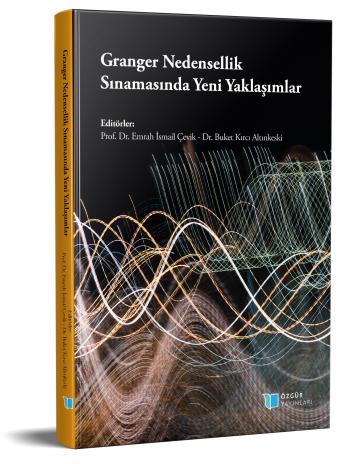
Enerji Tüketimi ve Ekonomik Büyüme Arasında Frekans Alanında Nedensellik Analizi: Türkiye Örneği
Şu kitabın bölümü:
Çevik,
E.
İ.
&
Kırcı Altınkeski,
B.
(eds.)
2023.
Granger Nedensellik Sınamasında Yeni Yaklaşımlar.
Özet
Enerji, modern endüstriyel ekonomide en temel girdi unsurudur. Ekonomik büyüme enerji tüketimi ile yakından ilişkilidir. Bu çalışmada enerji tüketimi ile ekonomik büyüme arasındaki ilişki frekans alanında nedensellik testi ile araştırılarak hem ilişkinin yönünün belirlenmesi hem de kısa, orta ve uzun vadede ilişkinin yönünün değişip değişmediğinin tespit edilmesi amaçlanmıştır. Çalışmada, enerji tüketimi ile ekonomik büyüme ilişkisi Türkiye ekonomisi için 1968-2021 dönem aralığında yıllık veriler kullanılarak frekans boyutunda nedensellik testi yardımıyla incelenmiştir. Breitung ve Candelon (2006) nedensellik testi yapılmadan önce enerji tüketimi ile ekonomik büyüme değişkenleri kullanılarak VAR model tahmin edilmiş ve optimal gecikme sayısı belirlenmiştir.
Elde edilen sonuçlara göre, enerji tüketiminden ekonomik büyümeye yönelik sadece uzun dönemde bir nedensellik ilişkisi tespit edilirken, ekonomik büyümeden enerji tüketimine yönelik bir nedensellik ilişkisi bulunamamıştır. Elde edilen bu sonuçlar Aydın (2020) ve Rashed ve Eren (2021) tarafından bulunan sonuçlar ile örtüşmektedir. Elde edilen bulgular doğrultusunda, emek ve sermayeyi tamamlayıcı bir unsur olan enerji tüketimi, uzun vadede Türkiye ekonomisinde ekonomik büyümeyi etkileyecektir. Bu bağlamda, karar vericilerin enerji teşvik politikalarını uygulamaları önemlidir. Enerji hammaddeleri üreticilere düşük fiyatlarla veya düşük vergi oranlarıyla sunulabilirse, bu büyümeye olumlu katkı sağlayacaktır.

